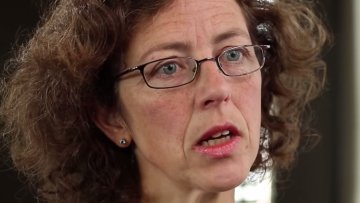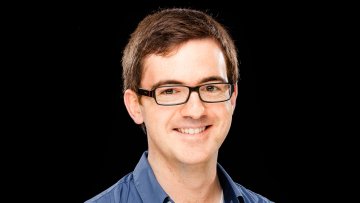The Society for Mathematical Biology has announced its 2018 Awards for established biologists and among the winners are Oxford Mathematicians Helen Byrne and Francis Woodhouse.
Working together: end-of-term mathematical board games
Abstract
Would you like to meet some of your fellow students, and some graduate students and postdocs, in an informal and relaxed atmosphere, while building your communication skills? In this Friday@2 session, you'll be able to play a selection of board games, meet new people, and practise working together. What better way to spend the final Friday afternoon of term?! We'll play the games in the south Mezzanine area of the Andrew Wiles Building, outside L3.
Dissertation: presenting a thesis
Abstract
This session is particularly aimed at fourth-year and OMMS students who are completing a dissertation this year. The talk will be given by Dr Richard Earl who chairs Projects Committee. For many of you this will be the first time you have written such an extended piece on mathematics. The talk will include advice on planning a timetable, managing the workload, presenting mathematics, structuring the dissertation and creating a narrative, providing references and avoiding plagiarism.
Mathematics: the past, present and future - "The Goldbach Conjecture"
Abstract
The Goldbach conjecture is a famous unsolved problem in mathematics. It asks whether every even number greater than or equal to 4 is the sum of two primes. I will discuss some of the history of the problem, explaining among other things why the answer is surely yes, and also why this appears to be very hard to prove.
Panel Discussion – What is it like to do a PhD/do research/be an academic in mathematics?
Studying independently
Abstract
New undergraduates often find that they have a lot more time to spend on independent work than they did at school or college. But how can you use that time well? When your lecturers say that they expect you to study your notes between lectures, what do they really mean? There is research on how mathematicians go about reading maths effectively. We'll look at a technique that has been shown to improve students' comprehension of proofs, and in this interactive workshop we'll practise together on some examples. Please bring a pen/pencil and paper!
This session is likely to be most relevant for first-year undergraduates, but all are welcome, especially those who would like to improve how they read and understand proofs.
What does a good maths solution look like?
Abstract
In this interactive workshop, we'll discuss what mathematicians are looking for in written solutions. How can you set out your ideas clearly, and what are the standard mathematical conventions? Please bring a pen or pencil!
This session is likely to be most relevant for first-year undergraduates, but all are welcome.
Making the most of intercollegiate classes
Abstract
What should you expect in intercollegiate classes? What can you do to get the most out of them? In this session, experienced class tutors will share their thoughts, and a current student will offer tips and advice based on their experience.
All undergraduate and masters students welcome, especially Part B and MSc students attending intercollegiate classes. (Students who attended the Part C/OMMS induction event will find significant overlap between the advice offered there and this session!)
Singular perturbation of manifold-valued maps with anisotropic elastic energy
Abstract
We consider vector-valued maps which minimize an energy with two terms: an elastic term penalizing high gradients, and a potential term penalizing values far away from a fixed submanifold N. In the scaling limit where the second term is dominant, minimizers converge to maps with values into the manifold N. If the elastic term is the classical Dirichlet energy (i.e. the squared L^2-norm of the gradient), classical tools show that this convergence is uniform away from a singular set where the energy concentrates. Some physical models (as e.g. liquid crystal models) include however more general elastic energies (still coercive and quadratic in the gradient, but less symmetric), for which these classical tools do not apply. We will present a new strategy to obtain nevertheless this uniform convergence. This is a joint work with Andres Contreras.



